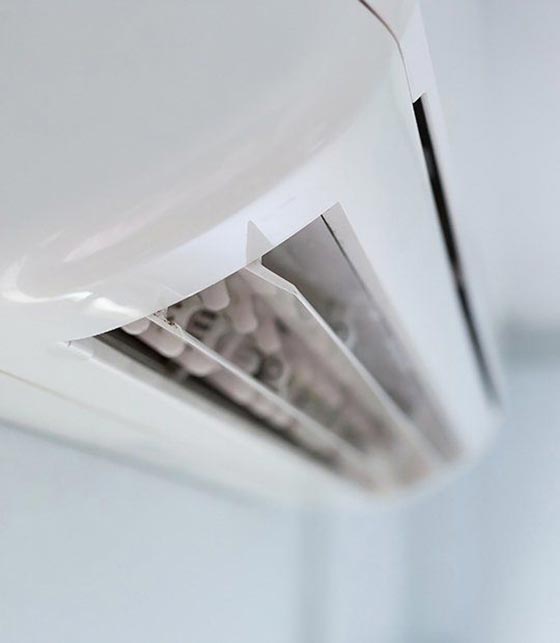Stay Chill: Quick Tips to Diagnose Your Aircon Problems
No one likes it when the mercury rises, and your trusty aircon decides to take a vacation. Everyone has experienced this situation: they are dozing off in the blazing heat and regret not paying closer attention to the cues their air conditioner was giving them.
Good news—you can still learn more about your air conditioner’s status. We will give you some quick and easy diagnostic tips for your air conditioner’s issues as a help.
From identifying strange noises to understanding why your unit blows hot air, we’ve got you covered. You’ll, therefore, be more equipped to tackle it the next time your air conditioner has a meltdown.
So, keep reading to learn more about diagnosing issues here. You may soon find the source and solution of your aircon woes!

5 Quick and Easy Tips to Diagnose Your Aircon Problems
Like every machine, your air conditioner has its causes of failure. Here are five simple tips for diagnosing the problem:
1. Inspect the Thermostat
One of the first places to examine when your aircon goes on the fritz is the thermostat. It’s essentially the command centre of your cooling system, telling your aircon when to start and stop based on your preferred temperature settings.
If your thermostat doesn’t work, your aircon won’t get instructions, and you’ll sweat instead of cooling. Sometimes, thermostats are misconfigured.
Set it to “cool” instead of “heat” or “off.” The temperature must also be below the room temperature. If not, tweak it. For digital thermostats, ensure that the display is working.
2. Listen Carefully for Unusual Sounds
Your air conditioner makes a continuous, humming sound when everything is working together like a symphony orchestra. However, strange noises like grinding, ranting or whistling are a red flag that something is wrong.
Grinding sounds might indicate that the bearings on your aircon’s motor are broken, while squealing could mean that the belt has slipped out of place or the motor bearing needs lubrication. A whistling noise, on the other hand, might suggest a refrigerant leak.
Always remember, your aircon should be seen and not heard. So, don’t ignore these noises—act on them! Get in touch with a professional if you hear anything out of the ordinary because this could be your aircon’s cry for help.
3. Check All Air Vents
It’s equally crucial to check all air vents in your home. These are the outlets from where the cool air flows into your rooms. Sometimes, these vents can become blocked by dust, debris, or even furniture.
If that happens, it can prevent the cool air from circulating properly, causing your aircon to work harder and potentially leading to breakdowns. Move any furniture blocking the vents, and clean them regularly.
Additionally, be sure to unblock any clogged vents. Although it won’t revive your air conditioner, it can help you save money on electricity and enhance the air quality inside your home.
4. Assess the Refrigerant Levels
Assessing the refrigerant levels in your aircon is also vital. Your air conditioner uses coolant to remove heat and maintain a cold climate in your house.
It won’t blow out enough cold air if it is undercharged, and if it is overcharged, the system may freeze. You should, therefore, check these levels regularly as per the manufacturer’s instructions and top them up when they become low.
To ensure that everything functions as it should and to avoid any potential issues, a professional should be hired to complete this. Thus, your air conditioning system will work less to chill you.
5. Look For Leaks
Is Aircon giving you trouble? Take a minute to play detective and check for leaks. Now, before you imagine yourself in a hazmat suit scanning every inch of your aircon with some high-tech device, relax.
It’s much simpler than that. If your aircon is leaking water, chances are something’s not right. This could be due to a blocked drain pipe or damaged cooling coils. Remember, leaks aren’t part of your aircon’s normal operation, so if you spot one, it’s time to call in the pros.
In addition to this, it’s also important to check for any gas or refrigerant leaks. It can be a bit more tricky since they are generally less visible than water leaks. In this manner, you can spot problems early and correct them before they become major.
Conclusion
Diagnosing the problem is the first step to fixing it. These simple tips will allow you to manage your air conditioner. Remember that air conditioners need regular maintenance and repair.
Follow these procedures to spot and fix minor issues before they become severe ones. A professional aircon expert should be consulted if all else fails.
So consider the above information and tips, and you’ll be able to diagnose your aircon problems quickly. Stay cool, stay healthy, and don’t sweat it out!



